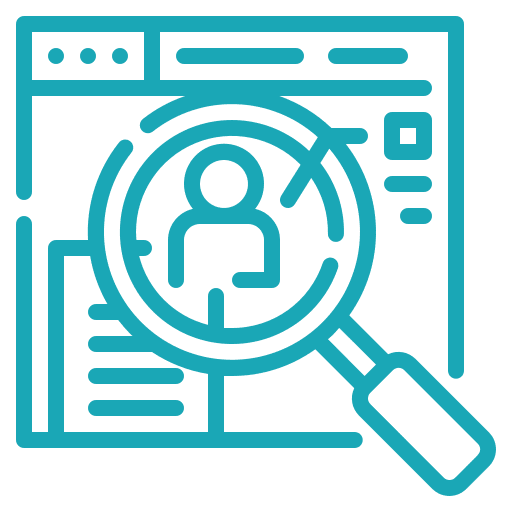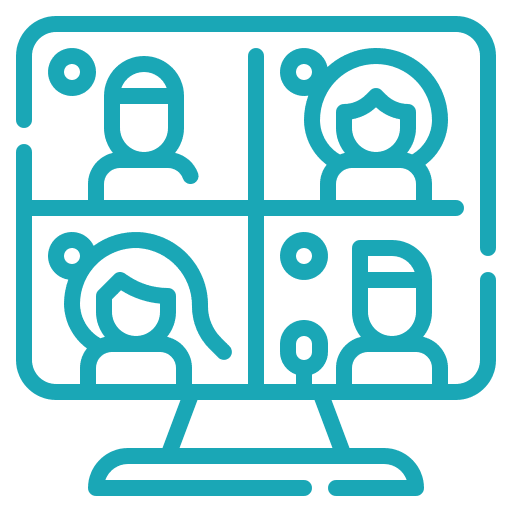
Proudly Sponsored By

Presenter: Amit Kesarwani
Director of Solution Engineering
lakeFS by Treeverse
Join us for the Retail Machine Learning Community’s Annual Gathering
15 speakers and 3 hands-on workshops will explore applications of Machine Learning from both the business and technical areas of expertise.
Attendees will have opportunities to meet with both academic researchers and industrial parties active in the retail sector in order to gain new perspectives from each other’s scope of work.
The Micro-Summit includes:
Join this new initiative to help push the AI community forward.





Chief Technology Officer, Bedrock AI

Talk: Interpretability and Robustness of Transformer Models in Healthcare

CIHR Health Systems Impact Fellow, University of Toronto
Talk: Detecting Medical and Non-Medical Named Entities from COVID-19 Free Texts

Assistant Professor (Teaching Stream), Computer Science, University of Toronto
Talk: Pre-Trained Multilingual Sequence-to-Sequence Models: A Hope for Low-Resource Language Translation?

ML Field Engineer, ContinualAI
Workshop: Operationalizing State of the Art Language Models

Assistant Professor (Teaching Stream), Computer Science, University of Toronto

Data Scientist, Dataiku
Workshop: Natural Language Processing in Plain English
Director of ML, Winterlight Labs
Jekaterina Novikova is a researcher with an established international profile at the intersection of Language Technology and Machine Learning, for interdisciplinary applications including Healthcare, Natural Language Generation, Spoken Dialogue Systems and Human-Robot Interaction. As a Director of Machine Learning at Winterlight Labs, she is leading the company’s research efforts and manages a team of research scientists and ML engineers. Jekaterina is recognized with the “Industry Icon” and “30 Influential Women Advancing AI in Canada” awards, and her work was notified with best paper nominations at multiple conferences.
Talk: Interpretability and Robustness of Transformer Models in Healthcare
Abstract: Understanding robustness of BERT models when they are used in healthcare settings is important for both developing better models and for understanding their capabilities and limitations. In this talk, I will speak about the robustness and sensitivity of BERT models predicting Alzheimer’s disease from text. I will also show how behavioural tests can be used to improve interpretability and generalizability of BERT models detecting depression.
What You’ll Learn: You will learn about the importance of model interpretability in healthcare settings and how to evaluate it in order to improve generalizability and robustness.
CIHR Health Systems Impact Fellow, University of Toronto
Dr. Shaina Raza is a CIHR Health System Impact Fellow. Her post-doctoral fellowship is co-funded by CIHR Institute of Population and Public Health (CIHR-IPPH)/Equitable AI and Public Health Ontario. Her host institution is Public Health Ontario and her academic institute is Dalla Lana School of Public Health in University of Toronto.
She is PhD in Computer Science, specializing in AI, natural language processing and deep neural networks. She is also a seasoned data scientist, a scientific editor in Elsevier and a peer reviewer in many peer-reviewed journals. Her research interests are in computer linguistic, social media, and in developing novel language models with a focus in biomedicine. She has a number of publications in high-quality journals and A* conferences in computer science and recently in biomedicine. Her website is shainaraza and her publication details are in Scholar.
Talk: Detecting Medical and Non-Medical Named Entities from COVID-19 Free Texts
Abstract: The application of the state-of-the-art biomedical named entity recognition task faces a few challenges: first, these methods are trained on a fewer number of clinical entities (e.g., disease, symptom, proteins, genes); second, these methods require a large amount of data for pre-training and prediction, making it difficult to implement them in real-time scenarios; third, these methods do not consider the non-clinical entities such as social determinants of health (age, gender, employment, race) which are also related to patients’ health. We propose a Machine Learning (ML) pipeline that improves on previous efforts in three ways: first, it recognizes many clinical entity types (diseases, symptoms, drugs, diagnosis, etc.), second, this pipeline is easily configurable, reusable and can scale up for training and inference; third, it considers non-clinical factors related to patient’s health. At a high level, this pipeline consists of stages: pre-processing, tokenization, mapping embedding lookup and named entity recognition task. We also present a new dataset that we prepare by curating the COVID-19 case reports. The proposed approach outperforms baseline methods on four benchmark datasets with macro-and microaverage F1 scores around 90, as well as using our dataset with a macro-and micro-average F1 score of 95.25 and 93.18 respectively.
What You’ll Learn: To extract named entities from free texts and to bridge a gap between NLP and epidemiology.
Assistant Professor (Teaching Stream), Computer Science, University of Toronto
Anne En-Sjiun Lee is an Assistant Professor (Teaching Stream) for the Computer Science Department at the University of Toronto. She received her PhD from the University of Waterloo in 2014 under the supervision of Professor Andrew K. C. Wong and Daniel Stashuk from the Centre of Pattern Intelligence and Machine Intelligence. She has also been a visiting researcher at the Fields Institute (invited by Nancy Reid) and CUHK (invited by K. S. Leung and M. H. Wong) as well as a research scientist at VerticalScope and Stradigi AI.
Talk: Pre-Trained Multilingual Sequence-to-Sequence Models: A Hope for Low-Resource Language Translation?
Abstract: What can pre-trained multilingual sequence-to-sequence models like mBART contribute to translating low-resource languages? We conduct a thorough empirical experiment in 10 languages to ascertain this, considering five factors:
(1) the amount of fine-tuning data, (2) the noise in the fine-tuning data,
(3) the amount of pre-training data in the model,
(4) the impact of domain mismatch, and
(5) language typology. In addition to yielding several heuristics, the experiments form a framework for evaluating the data sensitivities of machine translation systems. While mBART is robust to domain differences, its translations for unseen and typologically distant languages remain below 3.0 BLEU. In answer to our title’s question, mBART is not a low-resource panacea; we therefore encourage shifting the emphasis from new models to new data.
What You’ll Learn: What can pre-trained multilingual sequence-to-sequence models like mBART contribute to translating low-resource languages? We try to to answer this through empirical experiments on 10 different languages.
Workshop: Pre-Trained Multilingual Sequence-to-Sequence Models for NMT: Tips, Tricks and Challenges
Abstract: Neural Machine Translation (NMT) has seen a tremendous spurt of growth in less than ten years, and has already entered a mature phase. Pre-trained multilingual sequence-to-sequence (PMSS) models, such as mBART and mT5, are pre-trained on large general data, then fine-tuned to deliver impressive results for natural language inference, question answering, text simplification and neural machine translation. This tutorial presents
1) An Introduction to Sequence-to-Sequence Pre-trained Models,
2) How to adapt pre-trained models for NMT,
3) Tips and Tricks for NMT training and evaluation,
4) Challenges/Problems faced when using these models. This tutorial will be useful for those interested in NMT, from a research as well as industry point of view.
What You’ll Learn: This tutorial will give an overview of Pre-trained Sequence-to-Sequence Multilingual Models, tips, tricks and frameworks that can be used to adapt these models for NMT, the challenges faced while using these models and how to overcome them.
ML Field Engineer, ContinualAI
Brendan is a ML Field Engineer at Continual.ai, the operational AI platform for the modern data stack. Brendan has been helping customers across industries architect and implement ML solutions for half a decade. Before Continual, he was a Solutions Engineer at Cloudera and Oracle. He was also on the founding team at the autonomous toy company Bots Alive, which was acquired by Dash Robotics in 2017.
Workshop: Operationalizing State of the Art Language Models
Abstract: The remarkable efficiency and accuracy improvements achieved by Transformer models are an impressive leap forward. Researchers and practitioners are racing to discover new applications across different industries. Pre-trained models released for public use by organizations such as OpenAI, Google, Meta, and others are untapped potential for many organizations. Yet, massive operational barriers stand in the way of data science teams as they attempt to capitalize on the latest and greatest in NLP.
In this talk, we’ll describe the operational barriers hindering teams from taking state of the art models from the lab to production and how modern operational AI platforms allow businesses to take advantage of the exploding NLP ecosystem. We’ll also roll up our sleeves and step through an example of using BERT or GPT-2 to classify customer complaints into product categories.
What You’ll Learn: How to operationalize pre-trained transformer models for text classification
Data Scientist, Dataiku
Amanda is a Data Scientist at Dataiku with a strong interest in NLP and AI / Machine Learning business solutions. She has previous academic and professional experience with Java, Python, C, Neo4j, SQL, HTML / CSS, Dash, and JavaScript and a bachelor’s degree in Computer Science and Mathematics from Colgate University. Amanda has a proven track record of assisting large institutions in business transformation efforts in the advanced analytics space and an innate ability to explain deep technical concepts to a broad audience. This enables both business and technical individuals to digest and understand complex topics.
Workshop: Natural Language Processing in Plain English
Abstract: This session will provide an overview of natural language processing in plain english. We will cover useful text pre-processing techniques as well as common difficulties a machine faces when attempting to transcribe and interpret human language. We will then highlight the advanced NLP techniques that have been developed in response to these challenges as well as cutting edge technologies in the field such as Word2Vec and BERT. Finally, we will highlight common NLP use cases across industries and where there are opportunities to add textual analysis to your organization.
What You’ll Learn: The objective of the session is to educate users on how to harness insights from unstructured data and how this untapped data can enhance business processes and automate decision making.

Business Leaders: C-Level Executives, Project Managers, and Product Owners will get to explore best practices, methodologies, principles, and practices for achieving ROI.
Engineers, Researchers, Data Practitioners: Will get a better understanding of the challenges, solutions, and ideas being offered via breakouts & workshops on Natural Language Processing, Neural Nets, Reinforcement Learning, Generative Adversarial Networks (GANs), Evolution Strategies, AutoML, and more.
Job Seekers: Will have the opportunity to network virtually and meet over 30+ Top Al Companies.
Ignite what is an Ignite Talk?
Ignite is an innovative and fast-paced style used to deliver a concise presentation.
During an Ignite Talk, presenters discuss their research using 20 image-centric slides which automatically advance every 15 seconds.
The result is a fun and engaging five-minute presentation.
You can see all our speakers and full agenda here